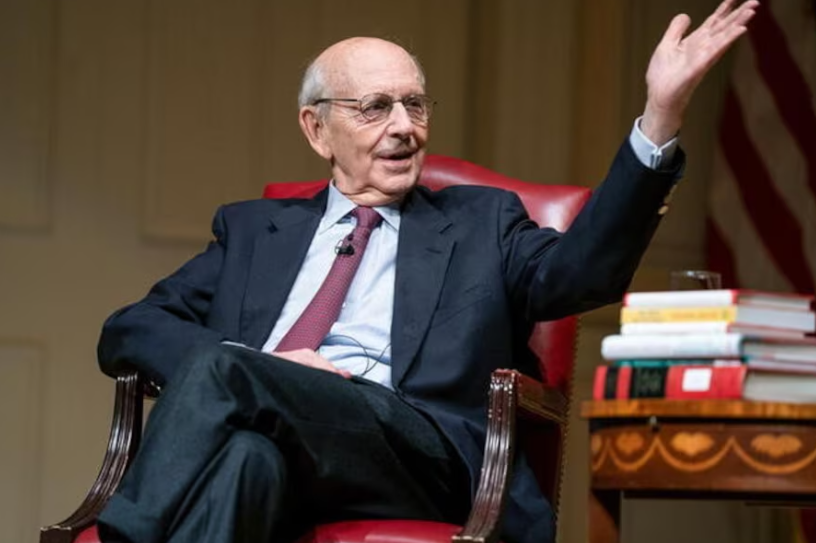Retired liberal U.S. Supreme Court Justice Stephen Breyer has announced plans to return to the bench as a visiting judge on the federal appeals court in Boston.
In an interview on a podcast hosted by Democratic strategist James Carville, Breyer, who previously served on the 1st U.S. Circuit Court of Appeals for 14 years before his tenure on the Supreme Court, disclosed his intention to resume judicial duties.
Despite stepping down from the Supreme Court in June 2022 following the confirmation of Ketanji Brown Jackson as his successor, Breyer opted for senior status rather than retiring entirely.
This status allows judges to continue serving in a semi-retired capacity.
Breyer emphasized his ongoing role as a judge, stating, “If you take senior status, you remain a judge.” He further explained his decision to maintain judicial standards and practices, underscoring his commitment to the judiciary.
Susan Goldberg, the circuit executive for the appeals court, confirmed Breyer’s upcoming stint on the 1st Circuit for the fall, though specific dates have yet to be finalized. Breyer’s decision to sit with the 1st Circuit echoes the post-retirement activities of his former colleague, David Souter, who frequently serves as a visiting judge on the same court.
While Goldberg noted that Souter is not expected to join the 1st Circuit this fall, she highlighted the significance of Breyer’s return to judicial duties.
The 1st Circuit, which covers appeals from Maine, Massachusetts, New Hampshire, Puerto Rico, and Rhode Island, is the smallest of the federal appeals courts.
Currently comprising five active judges appointed by Democratic presidents, the court awaits confirmation of a sixth judge nominated by President Biden.
Since leaving the Supreme Court, Breyer has resumed his affiliation with Harvard Law School’s faculty, where he previously taught before joining the 1st Circuit in 1980. Additionally, he recently authored a book titled “Reading the Constitution:
Why I Chose Pragmatism, Not Textualism,” which was published last week, showcasing his continued engagement with legal scholarship and discourse.

